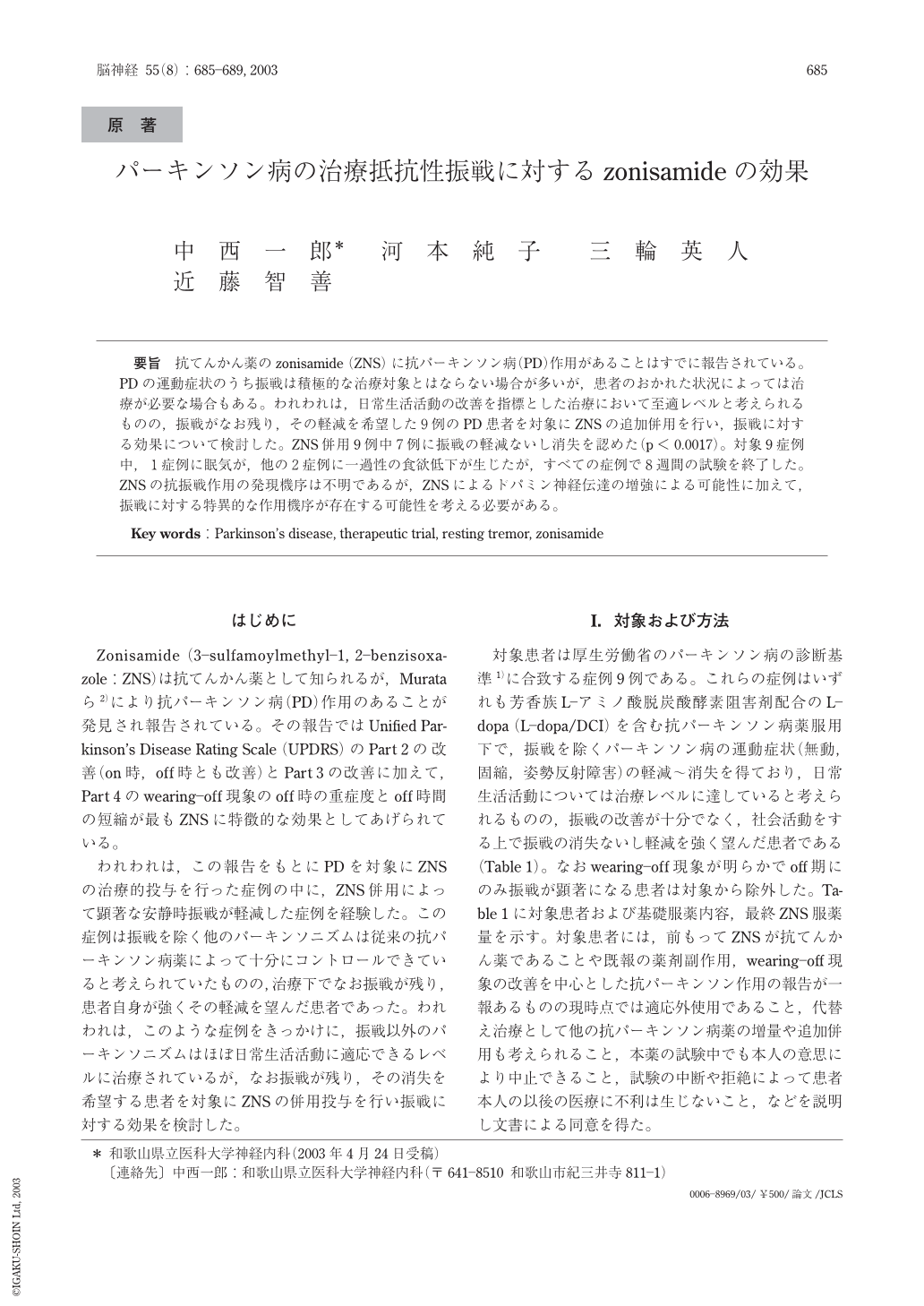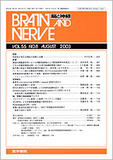Japanese
English
- 有料閲覧
- Abstract 文献概要
- 1ページ目 Look Inside
要旨 抗てんかん薬のzonisamide (ZNS) に抗パーキンソン病(PD)作用があることはすでに報告されている。PDの運動症状のうち振戦は積極的な治療対象とはならない場合が多いが,患者のおかれた状況によっては治療が必要な場合もある。われわれは,日常生活活動の改善を指標とした治療において至適レベルと考えられるものの,振戦がなお残り,その軽減を希望した9例のPD患者を対象にZNSの追加併用を行い,振戦に対する効果について検討した。ZNS併用9例中7例に振戦の軽減ないし消失を認めた(p < 0.0017)。対象9症例中,1症例に眠気が,他の2症例に一過性の食欲低下が生じたが,すべての症例で8週間の試験を終了した。 ZNSの抗振戦作用の発現機序は不明であるが,ZNSによるドパミン神経伝達の増強による可能性に加えて,振戦に対する特異的な作用機序が存在する可能性を考える必要がある。
The antiparkinsonian effect of zonisamide(ZNS), an antiepileptic agent, has been reported. Generally, resting tremor of patients with Parkinson's disease is not the main therapeutic target in this disease. However, depending on the social situation of the patient, the amelioration of the tremor may be necessary. In this study, we examined the effect of ZNS on tremor in nine patients who desired amelioration of their tremor. Except for tremor, they seemed to be under optimal therapeutic condition based on their daily activities. By the add-on administration of ZNS, the degree of tremor was reduced in seven out of nine patients(p<0.0017). Although one patient felt sleepiness and two patients had a transient loss of appetite, all the patients tolerated the eight-week ZNS administration period. The final dose of ZNS was 100mg/day in the majority of the patients. Although the mechanism of the antitremulous effect of ZNS is not yet clear, other than the enhancement of dopaminergic transmission, some specific action of the drug on tremor may exist. A more detailed random examination should be carried out.

Copyright © 2003, Igaku-Shoin Ltd. All rights reserved.


